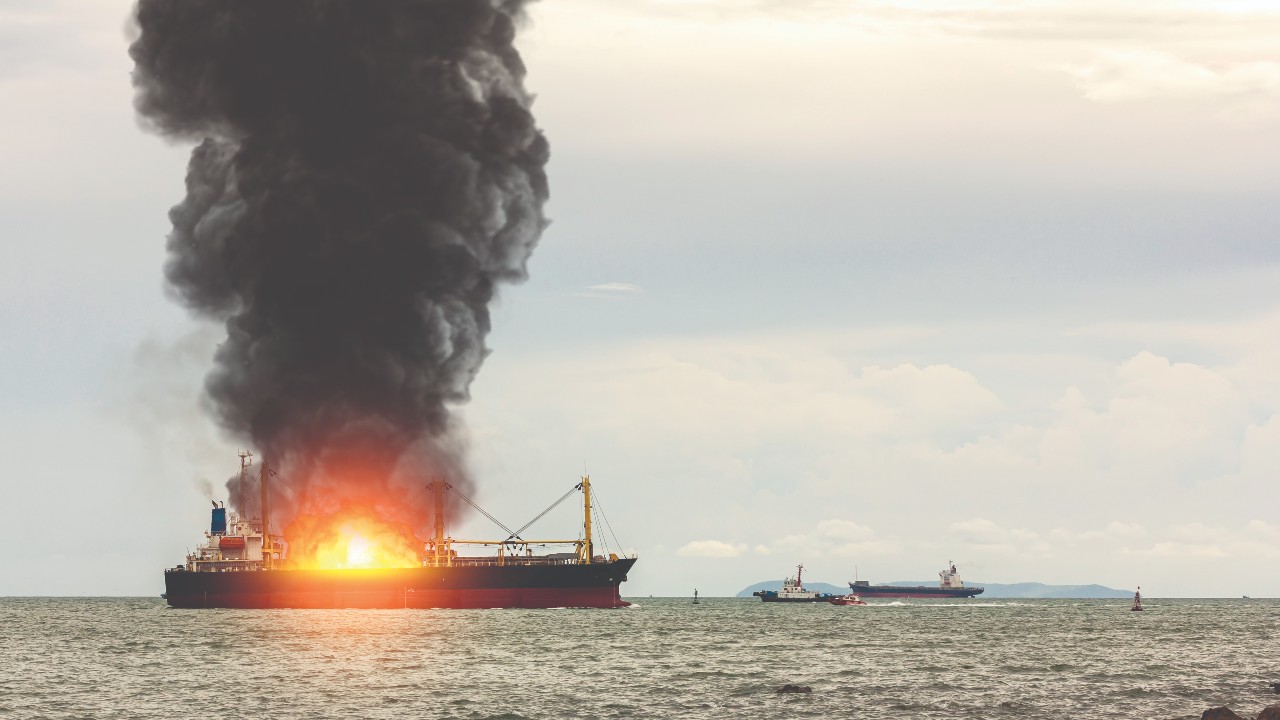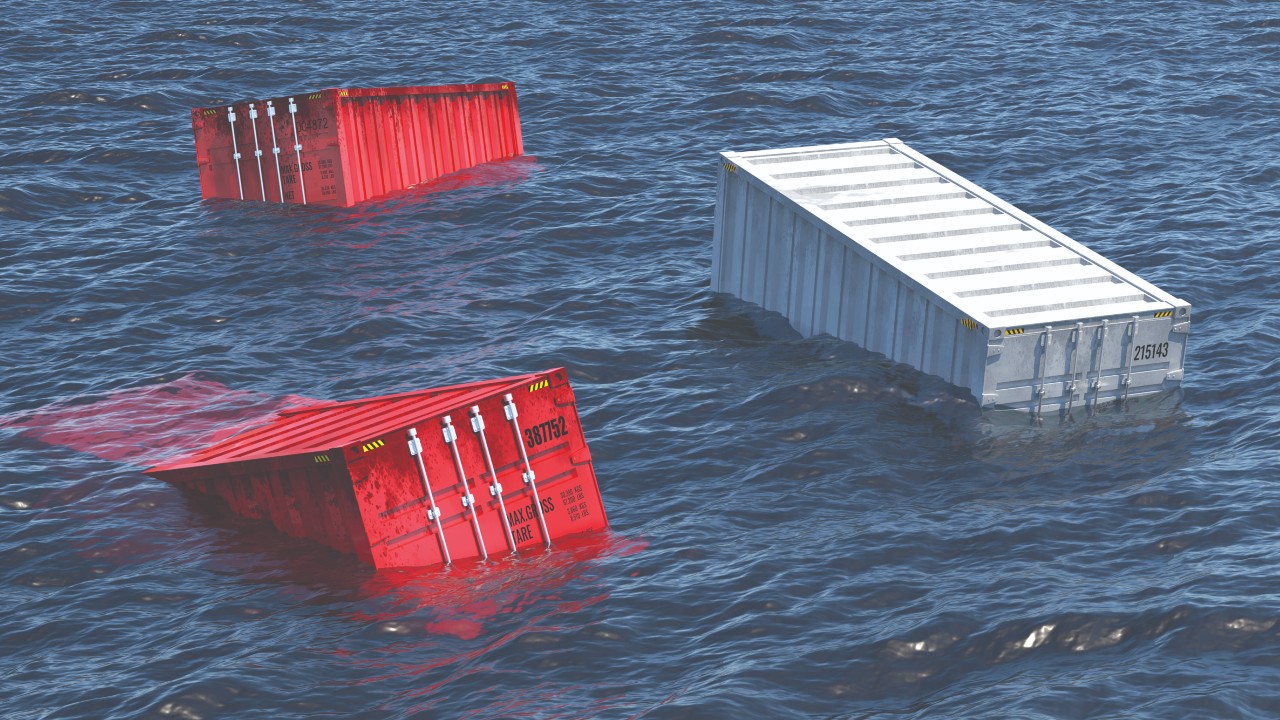There’s nothing new about mitigating risk in international business, but more threats are being faced by those who ship goods around the world than ever before. Just as the COVID-19 pandemic recedes, threats such as new armed conflicts have emerged – and the risks embodied by climate change have accelerated. So it is more important than ever for moving companies to consider their insurance strategy carefully, writes Andrew Bennett
Disruption has become the new norm in international trade. As the world recovers from COVID-19 and the chaos this caused, new factors such as wars in the Middle East and Ukraine, attacks on shipping in the Red Sea, and piracy have added to the pressures.
Insurance is not usually a topic that provokes strong passions, but, given the world today, it is more crucial than ever. As many movers are finding, however, insurance premiums are more expensive than before.
Of the global insurance market, Boris Populoh, Managing Director at global insurance service provider UNIRISC, Inc, says: ‘Overall inflation, coupled with climate change and an increased severity and frequency of weather-related disasters, have put insurers under pressure to offset mounting losses.’ Insurers have found that one way of counterbalancing the impact of mounting claims is to increase the cost of coverage, while limiting their ‘exposure to certain categories of risk’.
Populoh adds: ‘When looking specifically at the markets that provide coverage to the global household goods relocation industry, we see a shrinking pool of underwriters willing or able to offer coverage.’ He believes this trend is likely to continue into the near future.
How lockdowns hit home
A significant impact on both domestic and international moving insurance has been an increase in the frequency and severity of household goods- related claims in the years 2021-22. Pandemic lockdown measures across the globe led to worldwide supply chain and transportation disruptions and delays.
According to Populoh: ‘Those delays caused thousands of containers laden with household goods to sit idle for months at ports across the world. As a result, they were exposed to the elements and insurers saw a significant increase in mould and mildew-related claims once those containers began to be delivered. ‘Subsequently, these factors contributed to significant losses for most underwriters – losses that must be recovered via increased premiums.’

Emerging risks
The past few years have seen new risks emerge and be addressed by insurers and those involved in shipping household goods consignments. A recent issue is the inclusion of items containing Lithium-ion (Li-ion) batteries in shipments. Li-ion batteries are used to power electric cars, e-scooters, e-bikes, power tools and hover boards.
Their potential risks came into focus with vessel fires, including a well-publicised blaze on the Fremantle Highway off the coast of the Netherlands in July last year. This involved electric and hybrid vehicles on board, and showed the intensity of such fires. In response, shipping lines have been taking steps, with some specifying that any Li-ion batteries in consignments be separated from other goods and declared as hazardous cargo.
Writing about the potential risks of such batteries for the moving, shipping and storage industries, Malcolm Pearson, Managing Director at insurers Reason Global, says: ‘There are concerns around vehicles and vessels transporting these items and the risk of combustion in transit, as well as about warehouses holding items in store being at risk – or simply the accelerant factor that batteries might provide should another cause start a fire.
‘It has been recorded that, in a fire involving these batteries, a process called thermal runaway can occur, which can rapidly increase the heat of the fire from anywhere between 400°C and, in some cases, upwards of 2,000°C. This is allied to the fact that the temperature rise can happen in milliseconds.’
While many devices and machines use Li-ion batteries ‘safely and without issue’, there has been an increasing sense of concern about the dangers of equipment containing this type of battery.
Pearson says: ‘This has caused many in our industry to question the safety of such items in moving or storage consignments, and the potential exposure for companies and insurers… even if Lithium-ion batteries are not the cause of a fire, they are undoubtedly strong accelerants of one if present.’
Recent bans on carrying e-scooters on various forms of public transport highlight the new Li-ion battery safety climate.
‘The first area that the household moving and storage industries have already considered is whether the contractual relationship between company and client needs to be refined to place an element of responsibility with the consumer,’ adds Pearson.
‘The self-storage industry has already adjusted its terms around Li-ion batteries. Moving companies are likely to be looking closely at this in the coming year, with a view to a similar approach.’ In January, the British Association of Removers (BAR) Overseas Group issued a recommendation that Li-ion batteries are not shipped. In guidance to its members, the BAR said: ‘The acceptance of Li-ion batteries in household and personal effects shipments is a complicated subject. There is a widely reported increased fire risk associated with these batteries. Shipping lines themselves are so far inconsistent in standardising their rules for their inclusion or exclusion from a consignment. Typically, we experience that shipping lines will decide on a shipment-by-shipment basis whether Li-ion batteries can be included.’
Cyclones and other storms
Several other issues have also become a larger threat, including the increased severity and frequency of storms. According to Gadi Binness, President and CEO of Relocation Insurance Group, an online insurance agency: ‘Research published in science journal Nature warns that 1.8 per cent of global maritime trade is at risk every year, and cyclones are the main cause.’
‘Attacks on ships are another issue,’ he says. ‘The ICC International Maritime Bureau reported an increase in pirate attacks in the first part of 2023. Meanwhile, Houthi rebels have been targeting ships in the Red Sea with missiles. S&P Global reports that insurance costs have increased as a result.’
Binness advises that companies that facilitate international moves ‘must consider mounting risks when creating an insurance strategy to protect their customers’ valuable cargo’.
There is also the risk of cyberattacks and the increasing use of an insurance protocol known as ‘general average’. When containers need to be jettisoned or another emergency action taken at sea, financial liability for the losses incurred are shared by all parties. Therefore, moving companies who have consignments on board will be responsible for meeting a proportion of the expense.
‘Significant costs’
Last year, a fire onboard cargo ship NYK Delphinus highlighted the perils faced by ships at sea, and the risk of knock-on effects for cargo owners.
Japanese carrier NYK, part of Ocean Network Express, declared ‘general average’ on the NYK Delphinus following an engine fire while en route from the Port of Vancouver to Oakland, California, in May. The vessel was 50 miles offshore from Monterey when the US Coast Guard responded to a request for assistance.
The crew brought the fire under control and tugs then towed the ship towards Oakland, its destination port. However, for clients with goods and/or containers onboard, this wasn’t the end of the story. A fortnight after the fire, NYK announced it had appointed Oceana Marine Claims & Adjusting and Marine Adjusting Solutions as the average adjustor, stating that it would be ‘responsible for coordinating the collection of general average securities and all documentation required from parties with interest in cargo onboard, containers, vessel, and vessel fuel’.
According to Reason Global, the declaration of general average was once a rare occurrence, but ‘has been more common since the turn of the century’.
Reason’s Pearson says: ‘The costs that are redistributed following the declaration can be significant and could potentially affect cargo owners, including the refusal to release goods until the owner accepts responsibility and any associated costs.’
Circumstances in which general average can be properly declared by the ship’s owners/master must include events beyond the ship owner’s control (such as storms) that imperil the entire venture, a ‘voluntary sacrifice’, or an item being saved.
The ‘sacrifice’ might involve the jettisoning of specific cargo, the use of tugs or salvors, or damage incurred to the ship.
Simply too risky
With the world increasingly unpredictable, how international moving companies manage their level of risk effectively is now imperative.
UNIRISC’s Populoh says: ‘You don’t need insurance until you need it. Unfortunately, many individuals and companies don’t really take the time to review and understand their policies until a critical need arises.’
Relocation Insurance Group’s Binness adds: ‘Despite the rising insurance costs, cutting corners on insurance could lead to uncovered risk exposures and substantially higher loss costs. Without smart coverage, international moves could simply become too risky.’
Choosing moving insurance in a riskier world
With a wide range of options in the market, how can moving companies ensure they and their customers are protected at a time of crisis, or when the unexpected (and undesired) happens?
Going without insurance would be a step too far. Without it, individual financial liabilities and the risks presented by each household goods shipment would have to be covered directly by the service provider.
In the event of a claim for ‘total loss’, movers could face a claim of US$200,000 or US$300,000 to be paid directly – a significant liability, likely to be beyond the resources of many moving companies.
In terms of overall advice, Gadi Binness says: ‘Ensure that shipments have relocation insurance in place to protect goods at every step: at sea, in port and on land – and, possibly, while in storage. Finally, it’s important to know which risks are covered, including natural disasters, as well as crime and political conflict.’
Boris Populoh says moving companies should assess their specific insurance requirements and make sure they compare like with like in terms of policies and provision.
‘Policies and associated coverage levels can vary significantly from insurer to insurer,’ he says.
Movers should make sure they understand what risks they wish to mitigate and choose a policy that provides appropriate coverage levels.
The need to understand the deductible structure is also highlighted by Populoh. A deductible, like an excess on car insurance, is the amount movers pay before the insurance coverage kicks in. It is best to choose a level that matches your company’s risk- mitigation strategy.
According to UNISRIC, it is also important to confirm the financial strength of the insurer/broker underwriting your policy.
‘A financially stable insurer is more likely to fulfill its financial obligations (pay claims), especially during large-scale events or economic downturns. The same holds true for the broker providing other underlying services, such as claim adjusting, counselling, billing, and other ancillary services,’ said Populoh.
Movers are also recommended to evaluate the broker’s or insurer’s claim process. Research reviews and the insurer’s reputation for handling and paying claims promptly and fairly.
When comparing premium costs, movers are advised to make choices based on coverage, service levels and the financial stability of the provider. Other factors are the limits of policy coverage and any specific policy exclusions or limitations.
The financial impact of ‘general average’ (see main article), when this occurs, also needs to be taken seriously, according to Reason Global, which advises that marine insurance should include cover for this protocol.


